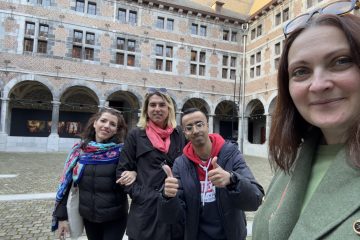Kinga began her European Solidarity Corps project with us in March 2024. She is collaborating with NGO La Baraka and the Coordination Socio-Culturelle de Sainte Marguerite (CSCSM), where she assists in delivering French as a Foreign Language (FLE) courses to adults, she helps children and teenagers with their homework and supports their participation in various extracurricular activities. Through her blog, Kinga shares her motivations for joining the programme, her initial impressions, and the valuable lessons she is learning from this experience.
Some of my more distant acquaintances thought I was out my mind, but the people closest to me said, “Great, congratulations on your decision.” Both attitudes were present in me as well. How can you leave a comfortable, well-paid, fully remote job and go to Belgium for a low-subsidized volunteer program? The world belongs to the brave, and once I remembered that, my hesitation turned into determination. My name is Kinga, and I’m a volunteer with the European Solidarity Corps.
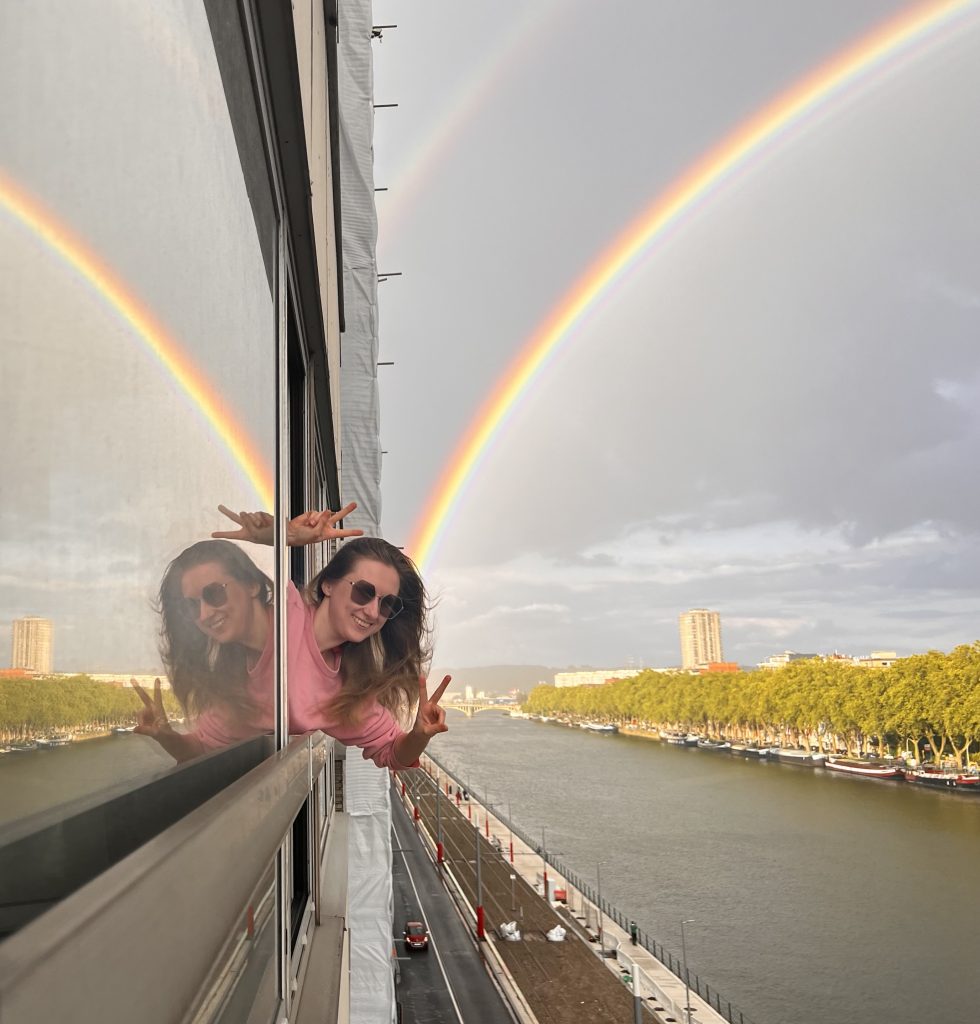
The Decision
My friend Dorota, who had participated in a project in France years ago, had long encouraged me to take part in a volunteer program under EVS (European Voluntary Service), now ESC (European Solidarity Corps). She still says it’s one of the best experiences of her life. I had read many times about the volunteer opportunities in Liège, Belgium, in the Polish Association for the Blind’s bulletin, but the dates never matched my life plans. However, after six months of job hunting and receiving yet another email rejecting my application, I decided it was time to make a bold move and join the project. My application thrilled Ania Lemarczyk from Polish Association for the Blind, who had already encouraged me to apply, knowing that with my French skills, I was the right candidate for work in Belgian Wallonia. She was not wrong.
The Recruitment
The recruitment process went as follows: after choosing the project, Ania scheduled an interview with the coordinator from the Belgian side, Views International’s Anca David. She then arranged an online meeting with people from the host organizations—Alain from Coordination Socio-Culturelle de Sainte-Marguerite and Dugumbi from La Baraka. The purpose of these meetings was to get to know the candidate and assess their motivation and language skills. Both meetings were very pleasant and friendly, and everyone was supportive, which convinced me even more to go. After these interviews, I handed in my resignation at work.
The Preparatory Visit
The actual project was preceded by a preparatory visit. Two weeks before starting my volunteer work, Ania and I flew to Liège for three days to meet future colleagues, the staff at Views, and my flatmate. It was also an opportunity to see the workplace, the apartment, and the city. All travel expenses were covered, so we didn’t have to spend any money out of pocket.
First Impressions
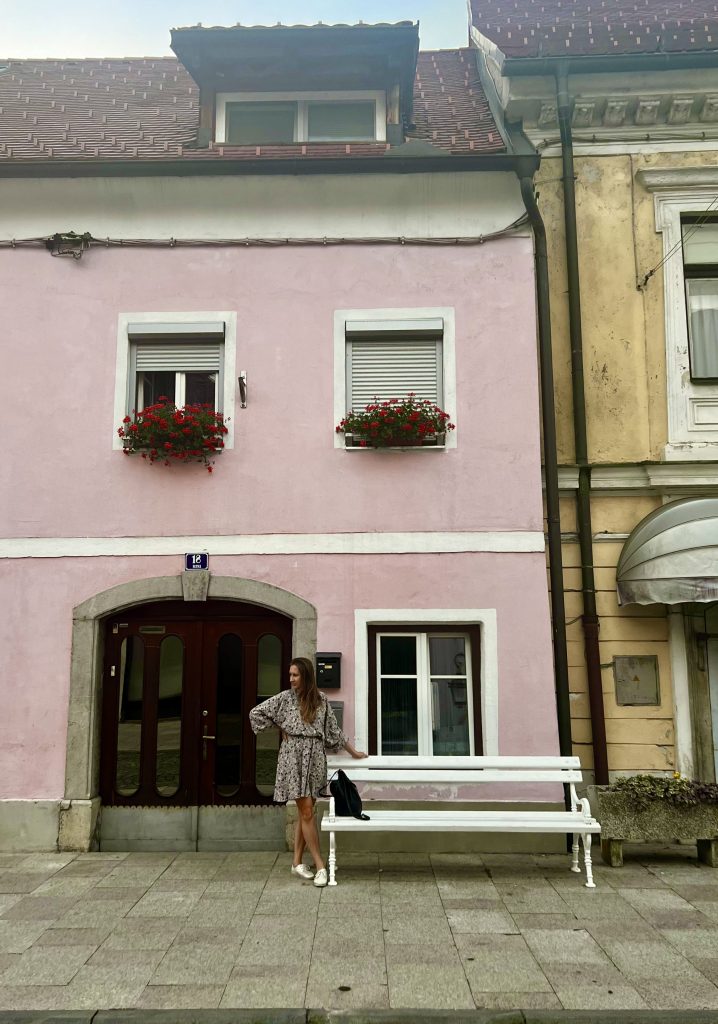
I felt good in Liège right away. Despite the ongoing construction everywhere, the city is beautiful, has interesting architecture, and the friendliest residents in all of Belgium. One of my biggest concerns was the accommodation and the conditions of the apartment provided by Views International. Luckily, since January, volunteers have been staying in a new, comfortable apartment near the city center.
My favorite part of the apartment is the panoramic window in the living room, offering a beautiful view of the river winding through the city, making every meal more enjoyable. All my guests are impressed by this window and love posing for photos. A little secret: there are outdoor fire escape stairs next to the building that lead to the roof, which is a perfect spot for a picnic with friends or a romantic date.
Getting Started
The volunteer program is very well organized. The first two weeks in Belgium are dedicated to getting to know the city, mobility training, learning essential routes, French language lessons, and other orientation meetings. The goal of this period is to help volunteers settle into the new city and meet new people. In my case, this period was shortened to one week, as I quickly felt confident and safe thanks to my good sense of direction and language skills. However, the program can be adjusted to individual needs, and the trainers and Views staff remain in contact with us, so help is always available. At no stage of the volunteer program are we left on our own.
The Belgian coordinator is very supportive, and I have a mentor who assists me with any new situations, like visiting the city hall, going to the doctor, or booking train tickets. During the first few weeks, Anca also introduced me to some people living in Belgium, giving me a chance to make friends and discover some cool spots.
The Work Begins!
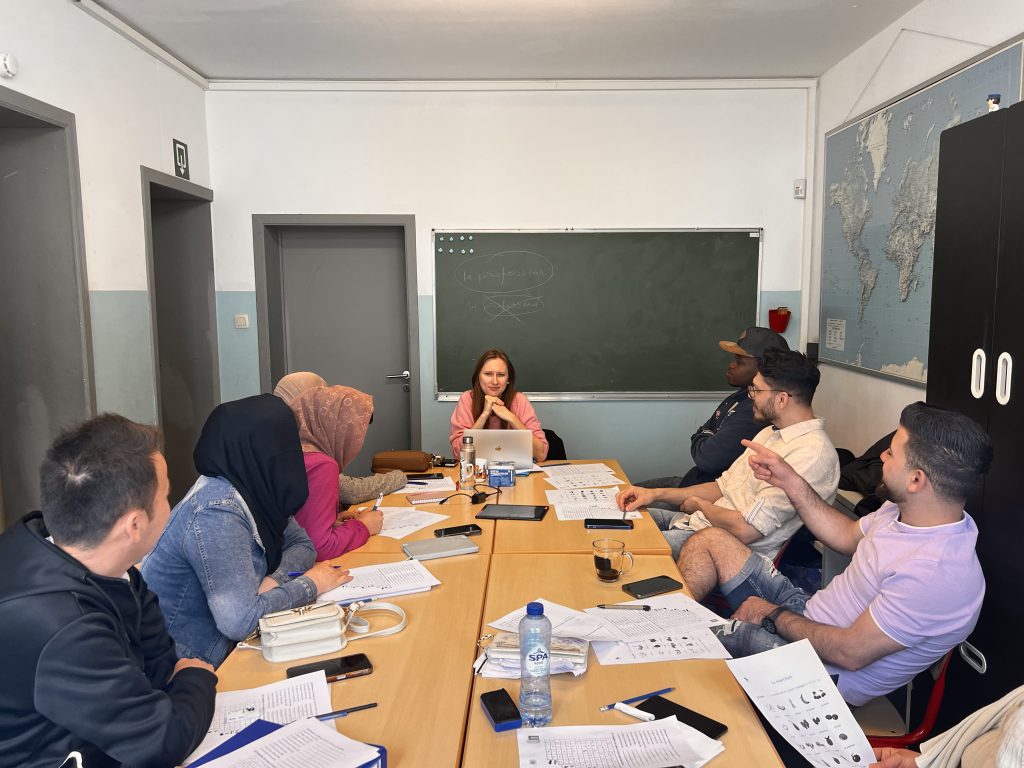
In my second week, I started working as an assistant in French classes for adult foreigners (FLE – Français Langue Étrangère). I immediately bonded with both the teacher, Philippe, and the students. During the first lesson, I impressed the group by showing them an alternative method for memorizing verb conjugations—the “boot method.” In the following weeks, I participated in various activities at both La Baraka and CSCSM. I assisted with evening French lessons for teenagers, worked with Alain in the office, and joined outdoor activities for children during school holidays.
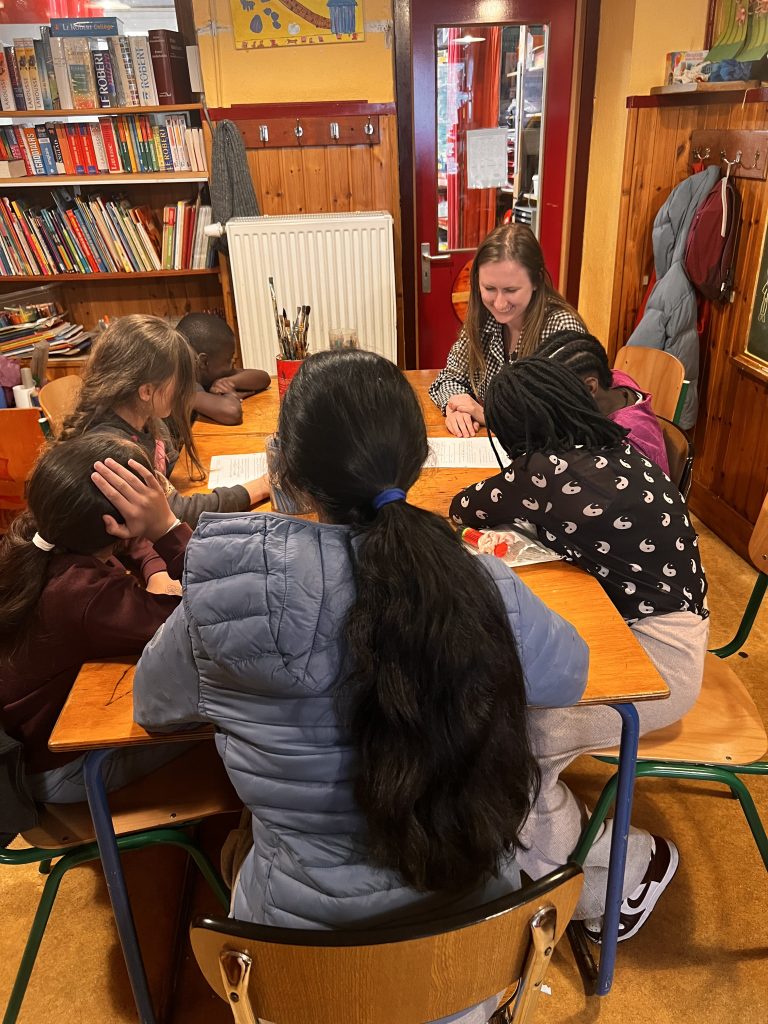
My schedule ultimately shaped up as follows: in the mornings, I help with FLE classes for adults, and in the afternoons, I assist children and teenagers with their homework in the homework school (fr. École de devoirs). As part of these activities, I also participate in extracurricular programs like theater clubs and orienteering classes. I’m also planning to write articles for the local bi-monthly magazine “Salut Maurice!” where I’d like to share my experiences of living in Liège as a person with low vision and discuss architectural accessibility issues.
Opportunities and Challenges
One of the greatest benefits of volunteering is the opportunity to further educate yourself by participating in additional projects and thematic events. I’m involved in the project “The Big Thing,” which aims to train informal education trainers. This project is run by Views International in partnership with organizations from Slovenia and Spain. Additionally, as a Views volunteer, I represent the organization at volunteer fairs, help organize events like “Dinner in the Dark,” and conduct workshops on raising awareness about visual disabilities. This gives me a chance to try new roles, including public speaking. There’s also an opportunity to participate in events focused on the activation and support of people with disabilities, both in the city and in Brussels.
Moreover, the holidays spent in Belgium gave me the opportunity to work on expanding my autonomy. In Poland, I was afraid to travel alone by train because in the past, I once got on the wrong train and ended up 300 kilometers away from my intended destination. However, here, I overcame that fear quickly. Train stations in Belgium are much less crowded compared to stations like the ones in Warsaw, where I lived, so it’s harder to mistake the platform or get on the wrong train.
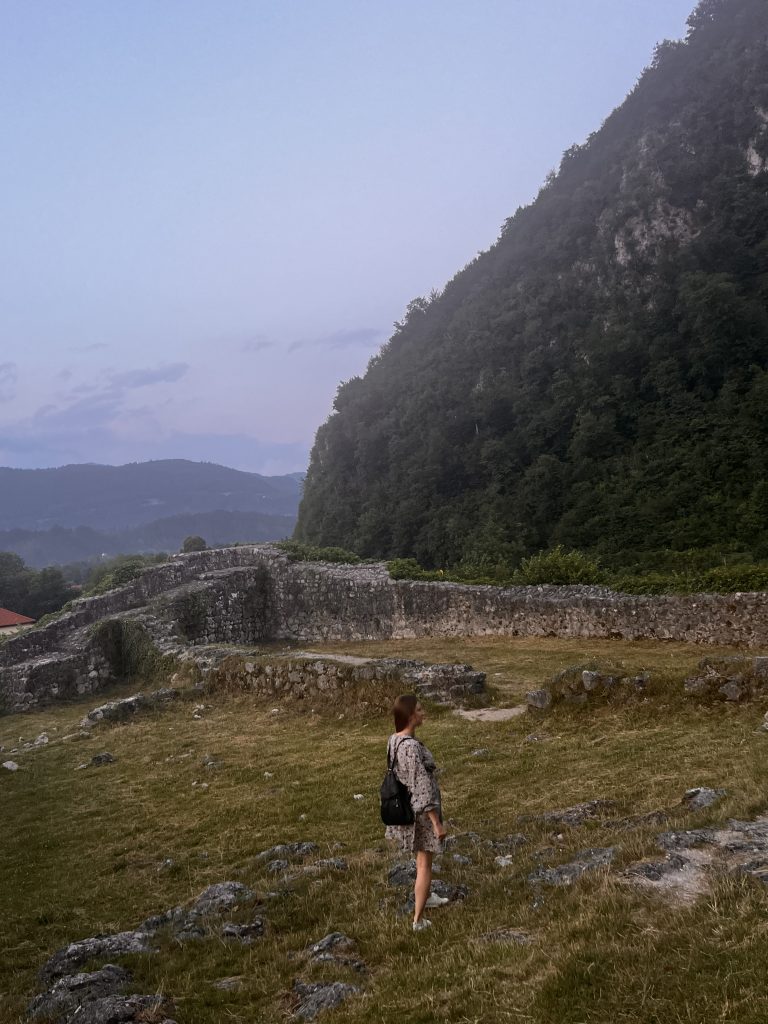
What’s more, the blue card guarantees free travel, so even if I make a mistake, I can return to the city without additional costs. During these few weeks, I haven’t experienced any unpleasant incidents related to traveling.
A Few Downsides
Like everything, volunteering also has its less glamorous sides, but from my point of view, they aren’t related to the project’s structure or organization. They’re more down-to-earth matters. Firstly, the endless roadworks and the resulting changes to traffic and public transport in Liège are starting to weigh on me. While I walk to work every day and genuinely enjoy it, there are days when I’d like to shorten my commute. But I have to keep in mind that there may be the changes to the bus routes, which could prevent me from reaching my destination. However, I’ve already seen the first trams being tested, so I hope that by autumn, I’ll be able to take this form of transport to work at least once.
Secondly, cloudy skies and rain are the norm in Belgium. I’ve learned to dress in layers and always carry an umbrella with me. Still, there are times when this weather affects my mood, especially when I hear about the exceptionally warm and sunny weather back in Poland. However, my holidays in Belgium have been filled with many trips, most of which had great weather, so I’m starting the second half of the project with recharged batteries – which, in my case, seem to work like solar panels!
Conclusion
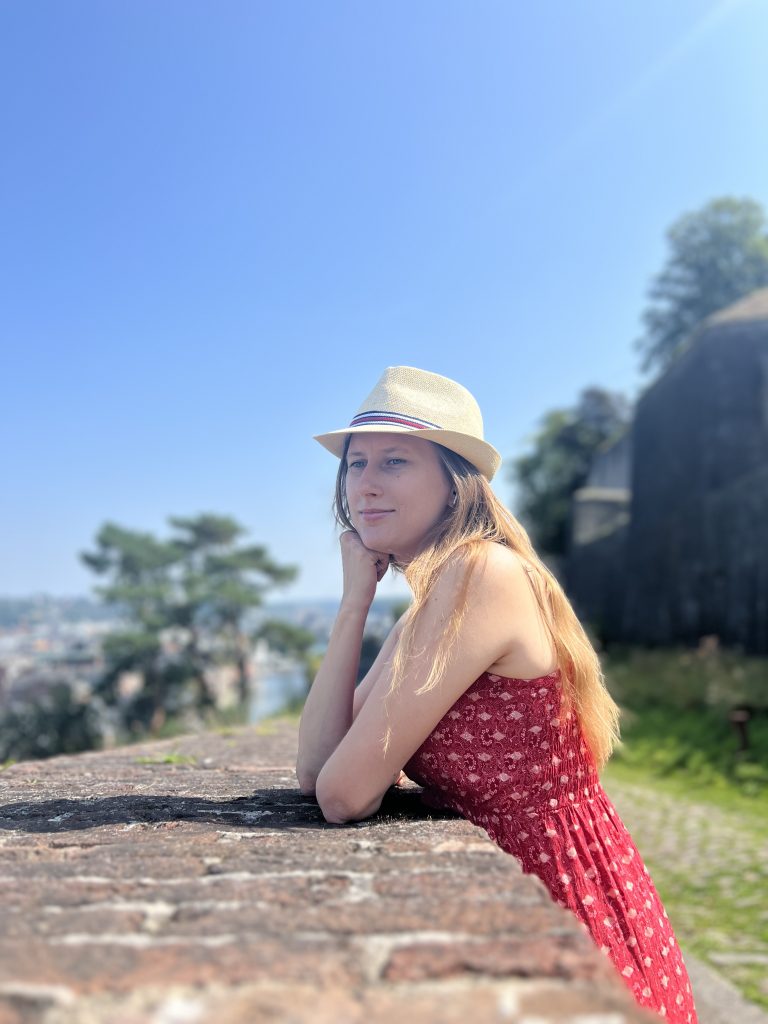
Thanks to volunteering, life is placing me in new and unusual situations. I feel immense satisfaction being able to flood my friends in Poland with anecdotes and stories about my adventures—whether they’re positive or negative, I’ve learned to laugh about them. As I write this, six months into my stay in Liège, I already know that this will be one of the most interesting experiences of my life, impacting both my professional and personal life.
